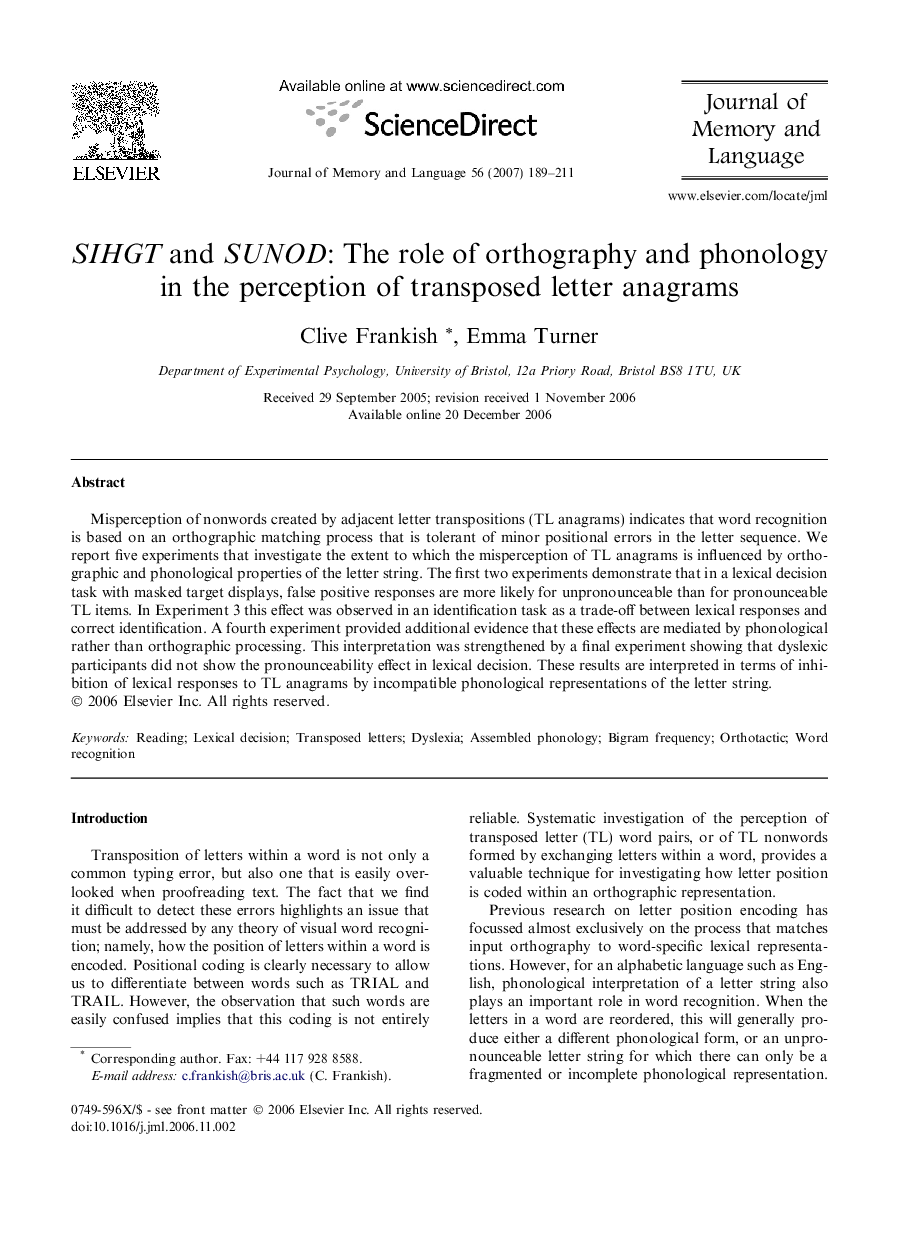| Article ID | Journal | Published Year | Pages | File Type |
|---|---|---|---|---|
| 932314 | Journal of Memory and Language | 2007 | 23 Pages |
Misperception of nonwords created by adjacent letter transpositions (TL anagrams) indicates that word recognition is based on an orthographic matching process that is tolerant of minor positional errors in the letter sequence. We report five experiments that investigate the extent to which the misperception of TL anagrams is influenced by orthographic and phonological properties of the letter string. The first two experiments demonstrate that in a lexical decision task with masked target displays, false positive responses are more likely for unpronounceable than for pronounceable TL items. In Experiment 3 this effect was observed in an identification task as a trade-off between lexical responses and correct identification. A fourth experiment provided additional evidence that these effects are mediated by phonological rather than orthographic processing. This interpretation was strengthened by a final experiment showing that dyslexic participants did not show the pronounceability effect in lexical decision. These results are interpreted in terms of inhibition of lexical responses to TL anagrams by incompatible phonological representations of the letter string.
